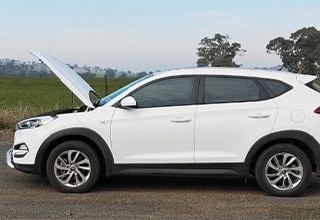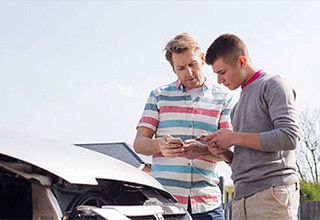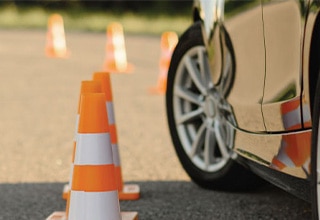- text
-
* Savings between $0 to $320 derived from premium comparisons between Everyday Comprehensive car cover option and Drive Less Pay Less option. Calculations based on profiles of existing Everyday Car Insurance customers who drive 15,000km or less annually. Current as at 06 March 2024. Eligibility for Drive Less Pay Less and actual savings is determined by your individual circumstances, including the kilometres selected and other risk factors and underwriting criteria. Minimum premiums may reduce savings. Kilometres can be increased to a limit of 15,000km per period of insurance for an additional premium. In the event of a claim, if the end odometer reading is exceeded, an additional Outside odometer excess will apply.
Car Insurance
13 Jan 2025
Car Care Tips.
Tips to take care of your car.
Whether you've rented a car and are heading on a roadtrip or you have your own car and regularly drive, it's important to know the basics of looking after a car.
We've put together a checklist of things to think about before getting behind the wheel for your next drive.
1. Engine Maintenance: Checking your engine’s oil.
Oil helps keep your car engine healthy by keeping clean, cool and lubricating the moving metal parts as well as preventing friction. A healthy engine could reduce your risk of breaking down and maintaining it could help avoid irreversible damage. You should check your car's engine oil weekly.
Before checking your engine's oil level, make sure your car is on a flat level and has been switched off long enough for it to cool down. This is so the oil has had time to settle and you get an accurate measurement.
Here's how to check the oil in your car:
Step 1: To start, pull out the dipstick from your engine and wipe it clean.
Step 2: Then push the dipstick back all the way in and wait for a few seconds. When you check the oil level, it should be between the two marks on the dipstick
Step 3: If your oil level is low, add more to your engine a little at a time until you have the right measurement. Be sure not to add more oil than the maximum amount marked on your car's dipstick as this could cause damage to your car's engine.
2. Knowing your car: User's Manual.
When you get the keys to your car, reading the Owner’s Manual is probably not the first thing you want to do, but it’s important. It will help you understand your car better and learn about any special requirements your car has, like how often it needs to be professionally serviced. You might also discover features that you weren’t aware of, that’ll make driving your car even more enjoyable. If you’re not the first owner of your car you might also find information on your car’s service history and any maintenance history.
3. Car Exterior: Windows and Lights.
Lights are an essential part of driving whether it's day or night. Lights let us indicate, see what’s ahead and let other drivers know what we’re doing, like braking and turning. So it's important to check regularly that they’re working.
Some cars have more lights than others, but here’s a list of the main ones:
Headlights (high and low beam)
Indicators (both sides)
Reversing lights
Fog lights
Tail lights
4. Professional Maintenance: Car Servicing.
There are some parts in a car that need to be professionally maintained by a qualified mechanic or repairer. During a professional car service, there can be up to 50 or more system checks done. Regular servicing will also save your wallet in the long run, as your car will run better and more efficiently when it’s maintained well.
Why pick Everyday Car Insurance?
* Benefits are subject to the terms and conditions including the limits and exclusions of the insurance policy. Eligibility for Drive Less Pay Less is determined by your individual circumstances, including the kilometres selected and other risk factors and underwriting criteria.
Find the cover that's right for you.
Related articles.
Sources:
opens in a new tab
opens in a new tab
- text
-
Cover and benefits are subject to eligibility criteria and terms and conditions, including the limits and exclusions of the insurance policy. Any advice provided is general only and may not be right for you. Before you purchase this product you should carefully read the Car Insurance Product Disclosure Statement and consider the Target Market Determination to decide if it is right for you.




